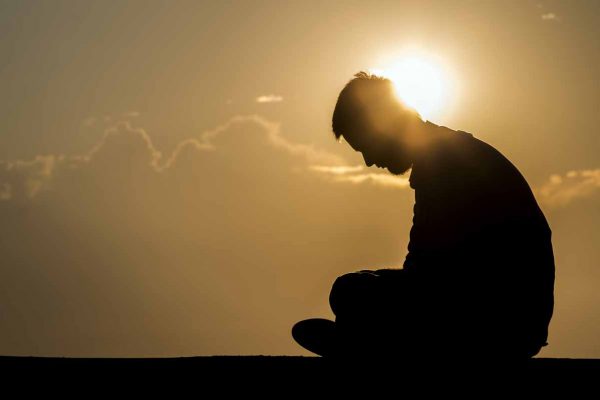We need to draw a (very clear) line between the art of pursuing a partner or spouse and harassing a woman for simply being a woman – not only is it damaging to the collective psyche of women but it also literally kills.
We need to draw a (very clear) line between the art of pursuing a partner or spouse and harassing a woman for simply being a woman – not only is it damaging to the collective psyche of women but it also literally kills.
[This article was written in March of 2021 and focuses in part around the horrifying attack on Sarah Everard. However the deeper, underlying issues of sexual harassment, misogyny, and the sexualization of women are (unfortunately) just as relevant today – we hope that as a collective society, we continue to speak out and against the systemic abuse of women at all levels of our community.]
The last few weeks saw two things that spurred on the topic of sexual harassment and abuse in wider society: first, a new survey by UN Women UK showed that 97% of women aged 18-24 and 80% of women of all ages have experienced sexual harassment in the UK; and second, the horrifying kidnap and murder of 33-year-old Sarah Everard whose remains were found after she walked back to her home in south London at night. She was found to be murdered by a male police officer.
Sarah Everard’s murder has sent shockwaves across the country – the fact that a woman was walking in well-lit streets, along a populated road she knew, on a regular evening, and was still killed, has ignited the topic of sexual harassment, abuse, and violence against women. Although local police in Clapham Common first urged “women not to go out at night this week”, the vigils and online debates that have sprung up after Sarah Everard’s shocking murder have stated what women have always been saying: women are not the problem here.
But if women are not the problem here, then are men the problem? As women, we can state from personal experience that yes, unfortunately, this is the case. Men are more often than not the problem. From walking down the street to work to friend circles to airports to literally anywhere on earth – we have always been sexually harassed. We have always been demeaned, abused, humiliated, and taken advantage of. So yes, it is easy and understandable that as women we would say simply that men are the problem here.
Men, however, do not work in a vacuum, and the layered abuses of women in society range from how women are portrayed in the media to the sexualization of young girls – all of which perpetuate the notion that women are only to be seen as sexual beings or objects of pleasure.
But let’s take a step back – what exactly is sexual harassment? I’m sure a lot of men are thinking that the occasional catcall or “Mashallah” yelled at a random girl walking down the street isn’t bad at all – and I’m also sure a lot of men reassure themselves by thinking that women tend to overexaggerate when it comes to being harassed. After all, men are just complimenting women, right?
According to Citizen’s Advice UK, sexual harassment is “unwanted behavior of a sexual nature which: violates your dignity, makes you feel intimidated, degraded or humiliated, or creates a hostile or offensive environment”. The UN also lists extensively what falls under sexual harassment, including catcalling, unwanted pressure for dates, sexual innuendos or stories, hanging around a person, staring at someone, or standing close or brushing up against another person.
At the end of the day, sexual harassment is scarily close to what many men (and women) think is “normal”, “flirty” behavior. But it is not. Far from it, in fact, and women continue to live a reality in which being demeaned and humiliated is a normal part of interacting with the world.
The stories from my life and the life of women family members, friends, colleagues, and acquaintances were enough to shock the men I spoke to about this issue – and that was without going into the worst, most intimately scary moments from our lives as women. We are stared at as we get into or out of cars. We are grabbed, touched, and pinched without our consent. We are whistled and catcalled at. We are told to smile more. We are raped. We are forced into situations where our bodies are no longer our own.
And what does this do to our psyche? What does this collective trauma do for women across the world, who know only too well the dangers of a world dominated by men? We walk more quickly at night (although we are trained to not venture out alone anyway). We send our location to friends and families when getting into an Uber or taxi. We fake a phone call to look like someone knows where we are. We smile politely when a man harasses us in case he gets aggressive and hurts us physically. We learn to look quietly at the ground and hold our breath to save ourselves because we know that in more cases than not, it is always the man who will decide when and if he will hurt you.
Because that is the unfortunate reality of the world today – we can learn to defend ourselves and empower women to speak up in abusive cases, but the reality of so many women is that none of this matters when you are faced with the horrifying truth that you are still the “weaker” gender, that men will still almost always get away with anything they do to you.
But what needs to change? Because it certainly doesn’t matter what the woman is wearing for her to get harassed or attacked. And this is the point in where we should reiterate the fact that a woman wearing a hijab or burka or niqab will not save her from a man ready to aggressively abuse a woman. It does not matter. Women in niqab get raped. Women in hijab get groped. Women – all women – get harassed and attacked by men. So again. What needs to change?
First off, we need more conversation. We need women speaking out. We need men speaking to the women they know – and we need men speaking to men. We need to teach our sons. We need to openly have these conversations in where we first admit the problem on hand – because we cannot attempt to solve any issue without first admitting there is one.
We need to draw (a very clear) line between the art of pursuing a partner or spouse and harassing a woman for simply being a woman – not only is it damaging to the collective psyche of women but it also literally kills. How many more deaths, how many more traumatized young girls and women, and how many more horror stories do we have to recount until we get the message across that this is not ok?
We need men to understand that women are not asking you to stop all forms of flirting or interaction with women (this is laughably impossible and we get that). We are only asking for respect, and for an understanding of our boundaries. We are only asking that you treat us as a human being first, and not always as a potential sexual partner for yourself. But we also understand that this issue is systematic and that both men and women are caught up in a never-ending cycle of hunt and be hunted.
If the issue is so systematic though, many of us will ask if speaking to our sons will really help, or if having these conversations even matter if the notion of objectifying women is so ingrained in our psyche. If the media and movies and pop culture all point towards the sexualization of women, isn’t it inevitable that the men in our own lives will end up perpetuating this and sexualize women of their own accord?
Yes – and no. Yes, it is very daunting to battle against the tidal wave of mass media that constantly objectifies women to mere sexual trinkets. But no, at the same time, the men in our lives do not have to fall into this trap, they don’t have to assume that to be a man means to demean or control a woman. It might mean holding our breath and diving under the wave of sexualized mass media, but when we come out after the wave – when we can breathe in a fresh breath of air – that is when we can interact and show mutual respect as both male and female. That is when we can reevaluate how men should act with women, and hopefully, how real men should act period.





